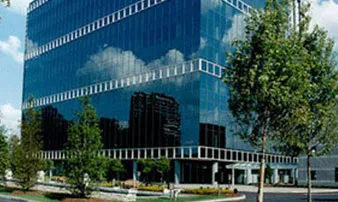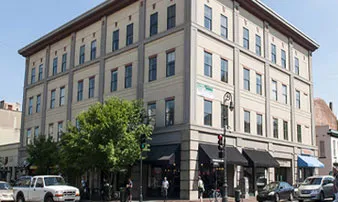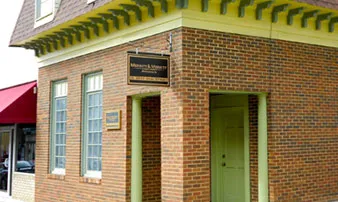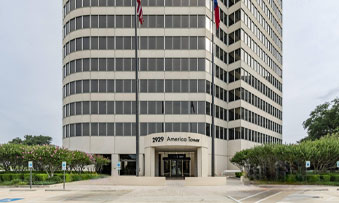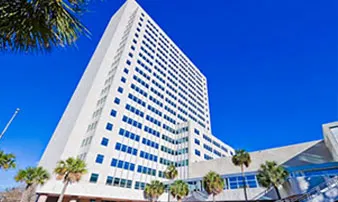Atlanta Train Accident Lawyer
Atlanta Train/Railroad Accident Attorney
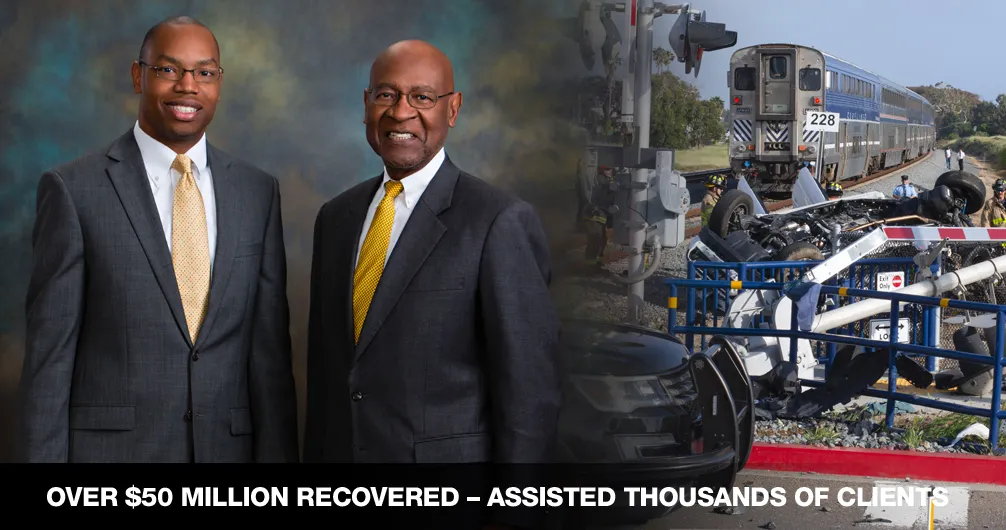
Train accidents are not uncommon, and when they happen, the resulting devastation can be horrific. The amount of physical, emotional, and mental trauma you could sustain from being involved in a train accident can be difficult to fully quantify. Depending on the situation, you could be looking at severe injuries, catastrophic damage, and serious trauma that you may never fully recover from. An Atlanta train accident lawyer can help you figure out the first steps.
The legal team at Merritt & Merritt can aid you in this trying time by helping you organize a legal case against whoever is responsible for your injuries. A train accident could be caused by the train’s manufacturer, the engineer, or some misplaced debris on the tracks. An investigation can help determine the cause. An Atlanta personal injury lawyer can provide you with quality legal representation throughout this process.
Helping Georgians Recover From Train Crashes
Were you injured in a railway accident caused by human error, manufacturer defect, or poor maintenance in Atlanta? Are you a railroad worker hurt on the job? We can help. With over forty years of experience, our FELA (Federal Employees Liability Act) and personal injury attorneys can help you recover compensation for medical expenses, funeral costs, emotional distress, and other losses.
We offer free case reviews, and we won’t charge you unless we win on your behalf. Call 404-975-1775 to schedule your free consultation today.
The Statute of Limitations
Deciding whether to pursue legal action against the party who wronged you in a train accident can be a big decision to make. If you ultimately decide to pursue a claim, it is important that you adhere to the state of Georgia’s statute of limitations for personal injury claims, including train accident claims. You will likely be pursuing damages from the railroad company, and you will have two years to make your claim.
The state gives you two years to develop a solid case, gather all the evidence you will need, consult with a train accident lawyer, and file your claim for compensatory damages. If you are not able to file your claim before two years have passed, there is a strong chance that your claim will be dismissed outright, and your opportunity to pursue damages will pass by.
Building a strong case against a railroad company can take a lot more time than you might think. You may want to get started on your claim as soon as you can. If you are worried that your case isn’t strong enough, you can seek advice from a train accident lawyer.
Causes of Train Accidents
According to the National Transportation Safety board, there were 761 fatalities caused by railway accidents in 2017 alone. The U.S. Department of Transportation groups the causes of train crashes into five major categories: human factors, track and structures, equipment, signal and train control, and miscellaneous. Of these categories, human factors and track/structures were the most prevalent.
There are over 250,000 highway-rail grade crossings throughout the United States. About 96% of train accidents occur at these dangerous intersections. States are responsible for evaluating the risks at grade crossings and prioritizing them for improvement.
The state highway authority, not railroads, decides whether to install warning devices at these crossings and what type of devices should be installed. Still, close to 25% of railroad crossings remain unprotected.
Navigating Common Carrier Laws in Atlanta
Vehicles that provide mass transportation as a paid service such as MARTA and Amtrak are known as common carriers. Common carriers owe a higher duty of care to passengers, pedestrians, and other motorists than other non-commercial drivers.
This means trains, tracks, crossings, and equipment must be inspected and maintained, potential hazards must be identified and controlled, the hiring and training of employees and train conductors must be done with care, and steps must be taken to reasonably protect train passengers.
Because of complicated laws and the variety of entities involved, determining fault after a train accident can be challenging. In some cases, railroad companies are deemed to have acted negligently and are responsible for the damages caused by conductors or engineers, track laborers, and maintenance teams.
Sometimes, train parts manufacturers and even other motorists or pedestrians may be responsible. Other times, a combination of responsible entities may result in multiple claims for damages.
We will help you to determine the party at fault for your injuries, whether it’s the rail company, manufacturer, or another motorist, and we’ll seek compensation for your trauma from all responsible parties.
FELA Attorneys for On-Duty Railroad Injuries
Railroad workers who are injured in train accidents while on duty are not protected by Georgia workers’ compensation laws. Instead, when train workers are hurt, the Federal Employers’ Liability Act, or “FELA,” governs their claims. Unlike with workers’ comp claims, to win a FELA claim you must prove that the railroad company’s negligence caused or contributed to the incident that caused your injuries. Common types of negligence that cause train worker injuries include:
- Inadequate equipment or track maintenance
- Defective tracks
- Inadequate training or supervision of employees
What To Do After You Have Been in a Train Accident
A train accident can be one of the most traumatizing events in your life. Unlike other vehicular accidents, such as ones involving cars, buses, or trucks, train accidents can be particularly devastating due to the size of the vehicle and the nature of the accident. You have a significant lack of control when you are riding a train, and that can be somewhat unnerving. If you are ever in a train accident, here are some steps you can take to protect yourself:
- Get to Safety: Once a train accident has happened, there is likely going to be an immediate frenzy as everyone begins to panic. In this situation, try your hardest to keep calm. Get yourself to safety as quickly and easily as you can. If you are too injured to move, patiently wait where you are for emergency services.
- Seek Help: If you are too injured, you should wait for EMTs to come to you. If you are injured but able to move, you should seek immediate medical attention. Some injuries may not appear until hours or days after the accident. Even if you are checked out and cleared by EMTs, you should go see a doctor at your earliest convenience. Having a medical record can be useful for your claim.
- Call 911: As soon as you are able, you should report the accident to the proper authorities and call 911. Give them as much information as you can. When police and medical services arrive, speak to the police about what occurred. Their detailed report will come in handy when the time comes to file a claim.
FAQs
Q: How Much Do Train Accident Lawyers Charge in Georgia?
A: There is no way to tell how much a train accident lawyer might charge in Georgia. Train accident cases, while similar, are likely going to be different for each person. Different circumstances in a case mean the amount a lawyer charges will be different as well. A train accident lawyer may take into account the difficulty of the case, their own experience and education, and the severity of your injuries.
Q: What Happens After a Train Accident?
A: A lot can happen after a train accident. The entire accident scene is likely going to be chaotic. You may have a difficult time getting to safety and away from the accident scene. Emergency responders will be present to help everyone involved in the accident, and you should seek them out if you are severely injured.
Q: Should I Accept an Offer From an Insurance Company?
A: It is recommended that you never accept an offer from any entity, including an insurance company, before first discussing it with your lawyer. Your lawyer’s job is to help you get properly compensated and keep insurance companies from taking advantage of you. The insurance company’s goal is to reduce liability. If your lawyer advises it, you may want to consider an offer. If not, keep negotiating.
Q: How Long Will My Train Accident Case Take To Finalize?
A: There is no exact timeline for a train accident case. Some cases can take months, while others can take years, and there are many different elements that need to be considered. An investigation has to determine fault, your injuries have to be evaluated by a doctor, and insurance companies need to evaluate the validity of your claim. All of this could take a while if your case is complex.
Reach Out to an Experienced Train Accident Lawyer
Few events in your life can be as frightening as a train accident. If you wish to pursue legal action against the railroad company or whoever else was at fault, reach out to a train accident lawyer today. If you have been hit by a train call our train accident attorney now at 404-975-1775 for assistance.
The legal team at Merritt & Merritt Law Firm can help you ensure your case is as strong as it can be before pursuing compensation for your injuries. Contact us to schedule a consultation with a valued team member today.

